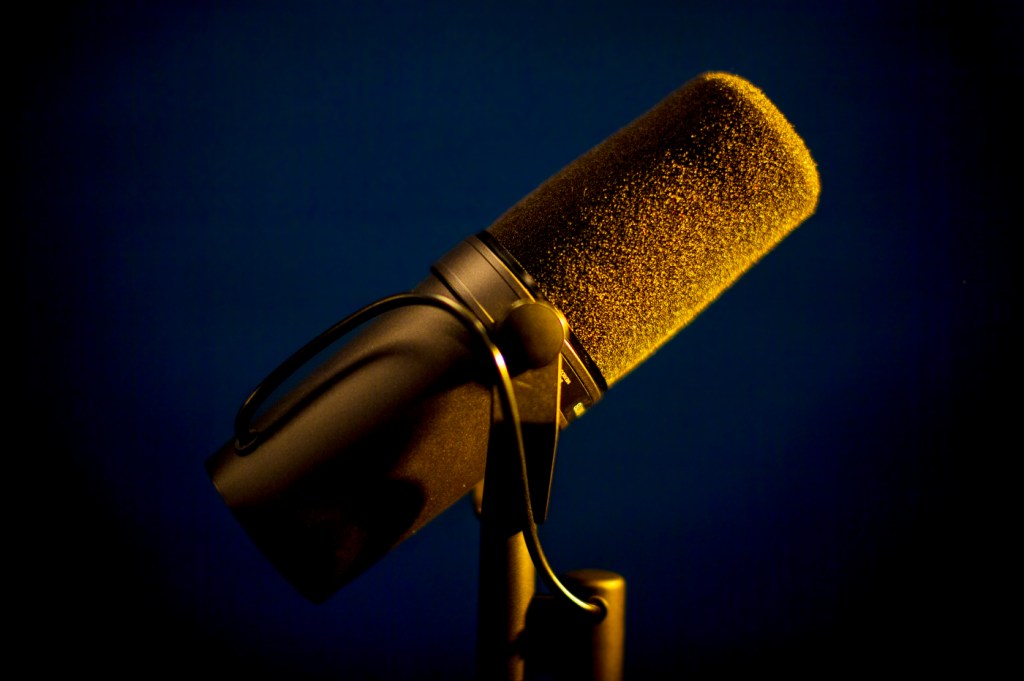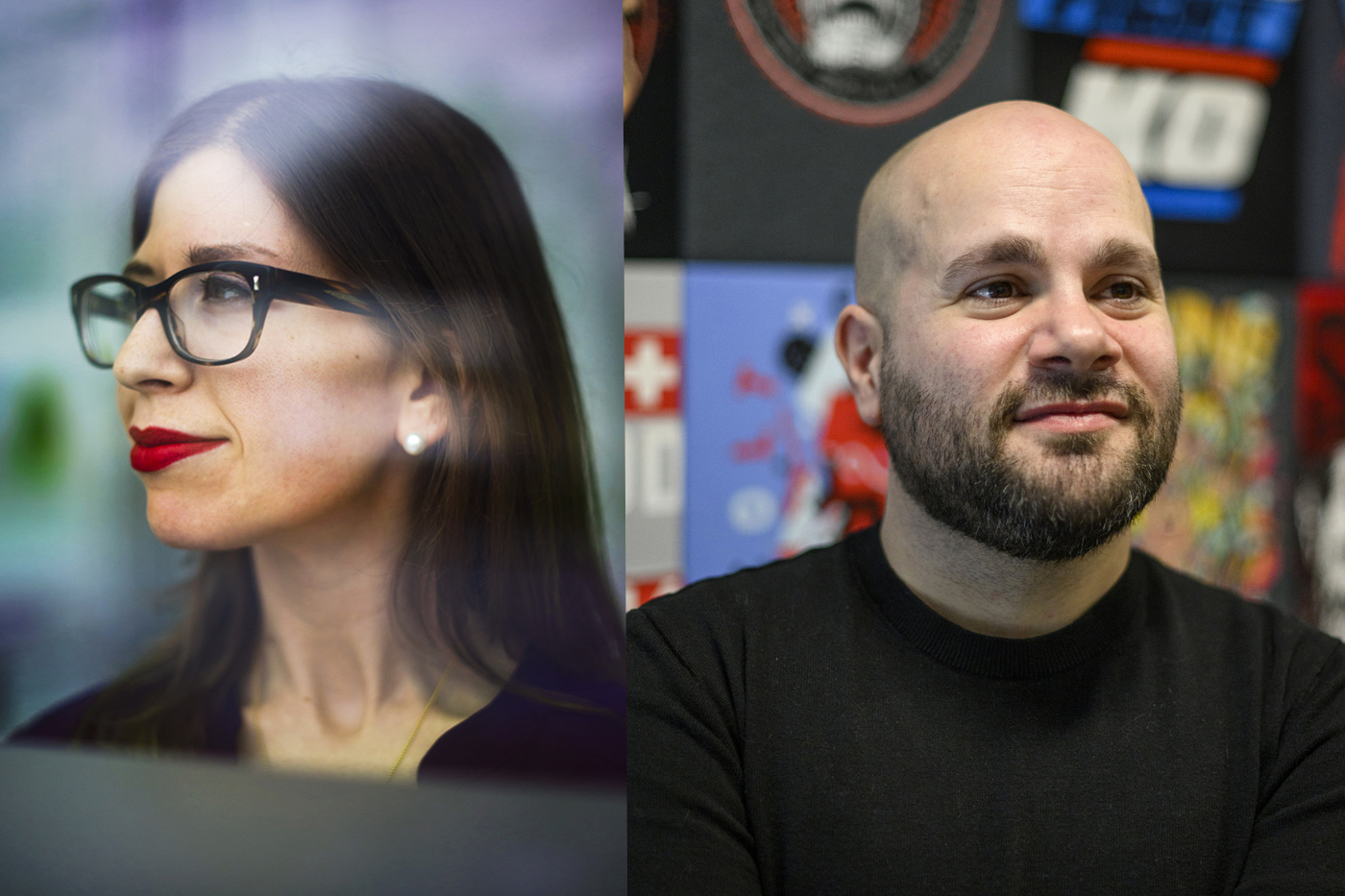Have podcasts peaked? If so, what comes next?

Nearly two decades after Steve Jobs introduced the then-novel audio media format to the masses, podcasts are still everywhere — with new ones popping into existence seemingly by the day.
According to the music streaming service Spotify, there are roughly 4.7 million podcasts on its platform alone. This year, Apple claimed to have some 2.5 million podcasts on its platform.
Although there’s data to suggest that podcasts — in terms of the sheer quantity — have peaked, Northeastern experts say that the audio mode is an enduring form that speaks to cultural and technological shifts in the way information is transmitted.

Northeastern University communications studies professor Meryl Alper says the increased availability and affordability of the smartphone was “a key inflection point” in the popularization of podcasts. As media grew more decentralized in the 2000s and beyond, podcasts became “an extension of the fragmentation of media audiences,” she says.
Alper teaches mobile communication courses at Northeastern; course material has touched on the evolution of the podcast as a relatively novel information medium, with societal implications that span generations.
“Thinking about, for example, 1930s radio as a central gathering point for a group of people, the rise of podcasts is very much tied to personal, portable media as opposed to a single mass medium,” Alper says.
What does the future of the podcast look like to Alper? She says there’s lots of room for the form to grow. Podcasts for children are having a moment, she adds. Asked about whether she thinks podcasts have peaked in popularity, Alper says that question offers too narrow a definition of the medium. In her classes, she groups podcasts into a larger media category that includes “music” and “sound,” extending the form’s potential beyond its storytelling, interview and conversational modes.
Steve Granelli, associate professor of communication studies at Northeastern University, says podcasts were originally conceived, quite simply, as “radio on-demand” — a response to the appointment listening paradigm that accompanied traditional radio before the internet.
Granelli’s research has focused on pop culture, specifically questions of fandom, like how and why certain ideas, brands or media modes grab our attention and grow into mass phenomena.
In addition to being interested in all things pop culture, Granelli is a self-described radio junkie and “huge podcast fan.” For him, the emergence of the podcast is intimately linked to developments in radio.
“We can trace the rise of the podcast to the shift from appointment listening to on-demand content,” he says.
Satellite radio, which enabled radio signals to reach broader geographical areas via satellites, was considered a midpoint between the appointment listening model of the radio and the shift toward on-demand content. Satellite radio services like SiriusXM, with help of radio personalities such as Howard Stern, set the stage for a spoken word model that feels informal, intimate and conversational.
Today, the line between radio and podcasting is blurred, radio insiders say.
“The appeal of the podcast initially was that it mirrored that audiences’ desire to choose what media or specific personalities they wanted to listen to, with the added benefit that it was inherently portable,” Granelli says.
Additionally, podcasts provide a way for listeners to tap more meaningfully into specific hobbies or interests, as well as the communities that coalesce around them. The kicker, Granelli says, is being able to do so on the go.
More than a means of relaying information, podcasts — unlike, say, TV or traditional radio — provide a deeper sense of “culture, community and identity” for fans, he says. Indeed, it’s become a cultural identifier in ways other media haven’t.
“Being a podcast listener could become part of one’s identity,” he says.
But Granelli suggests that we may be at a “point of saturation” with podcasts. With so many floating about, listeners might be starting to feel some burnout.
“I think the formatting of podcasting is getting very repetitive because it’s been so set, and you know you can drop anybody into it, and because anyone can make a podcast — within that format, there’s not a lot of variation; there’s not a lot of change,” he says. “It kind of feels like when every sitcom looked and sounded alike.”
Still, Granelli notes that podcasts are a “proven, sustainable medium,” with room to evolve. “I think there’s something to be said about the next evolution of podcasts including some sort of video or live-reaction component.”
On the other hand, both Granelli and Alper point to podcasts as a place where misinformation and harmful content can be spread with impunity.
“We have to ask ourselves: are there certain kinds of conversations that are being promoted through podcasts that a large number of people would say maybe aren’t for the public good?” Alper asks.
Granelli notes that there is a general lack of oversight when it comes to online content. Whereas the Federal Communications Commission regulates TV, radio and other forms of broadcasting, it doesn’t oversee content put out by podcasts.
“Part of the problem with podcasts is that it really is an asynchronous model of delivery,” he says. “Because it’s asynchronous, the capacity for instant feedback or correction to misinformation is removed; without any real oversight it’s a breeding ground for unchecked misinformation and potentially dangerous content.”
Tanner Stening is an assistant news editor at Northeastern Global News. Email him at t.stening@northeastern.edu. Follow him on X/Twitter @tstening90.







